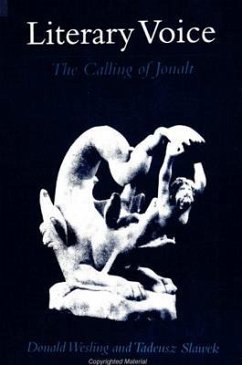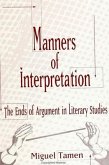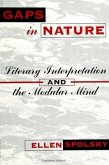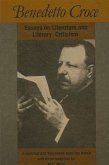Jacques Derrida has ably analyzed the writing that is in speaking, but this reply to his work analyzes the speaking that is in writing. This book defends and illustrates literary voice against modern philosophy's critique of the spoken, and in the light of Mikhail Bakhtin's dialogism and Henri Meschonnic's studies on subjectivity in rhythmic language. The authors find literary voice to be maximal in bardic speech, where the author speaks for the nation. This full voice stands between the two minimums of the body (grunts and sighs and birdsong), and the material text (loss of logic, narrative, and social tones in Nietzsche and in the American LANGUAGE poets).
Hinweis: Dieser Artikel kann nur an eine deutsche Lieferadresse ausgeliefert werden.
Hinweis: Dieser Artikel kann nur an eine deutsche Lieferadresse ausgeliefert werden.








